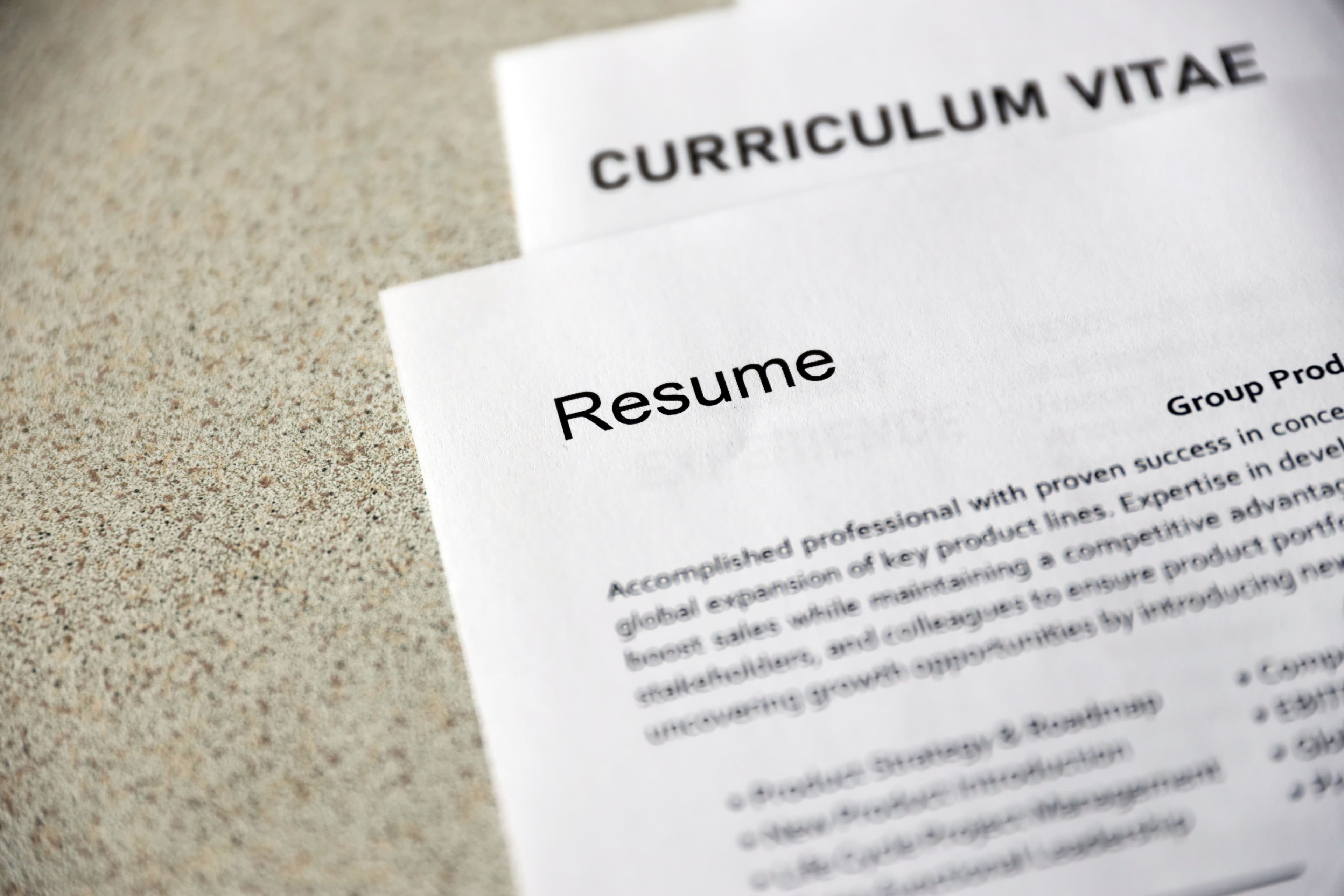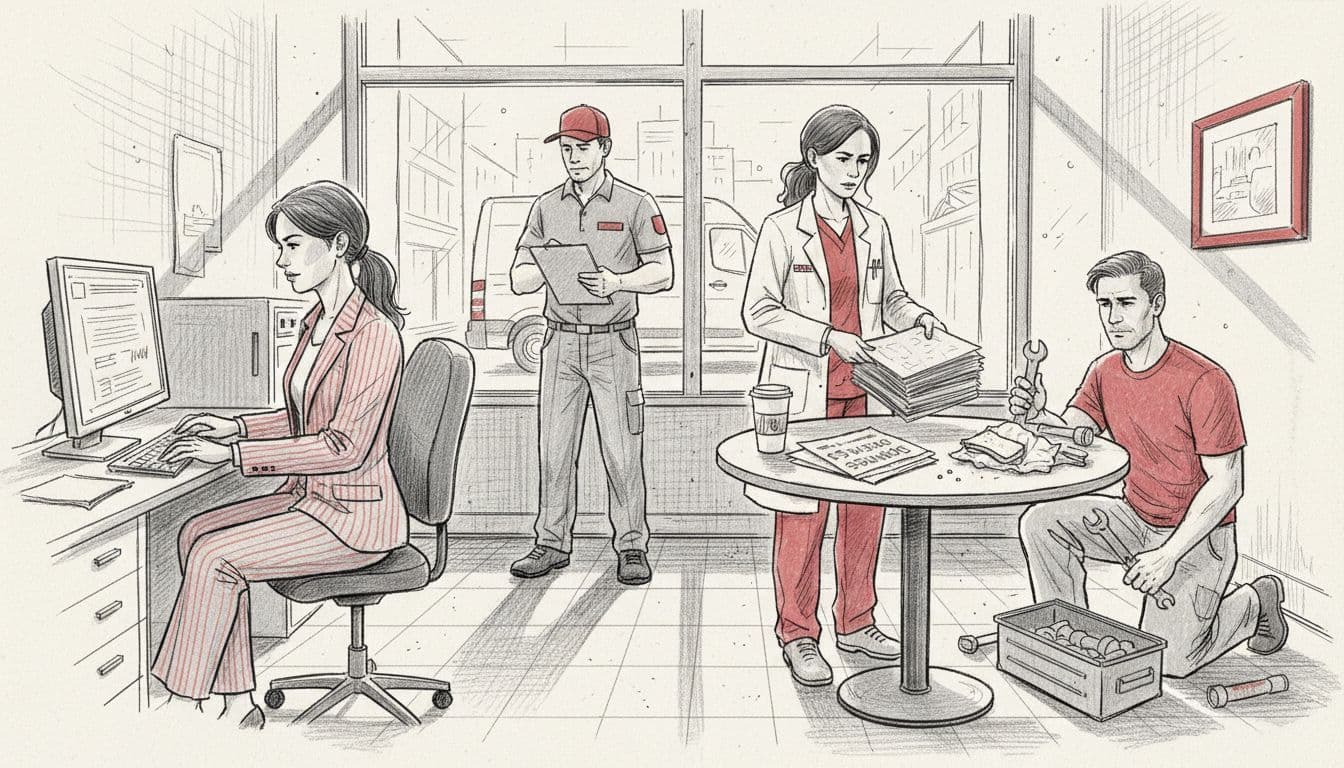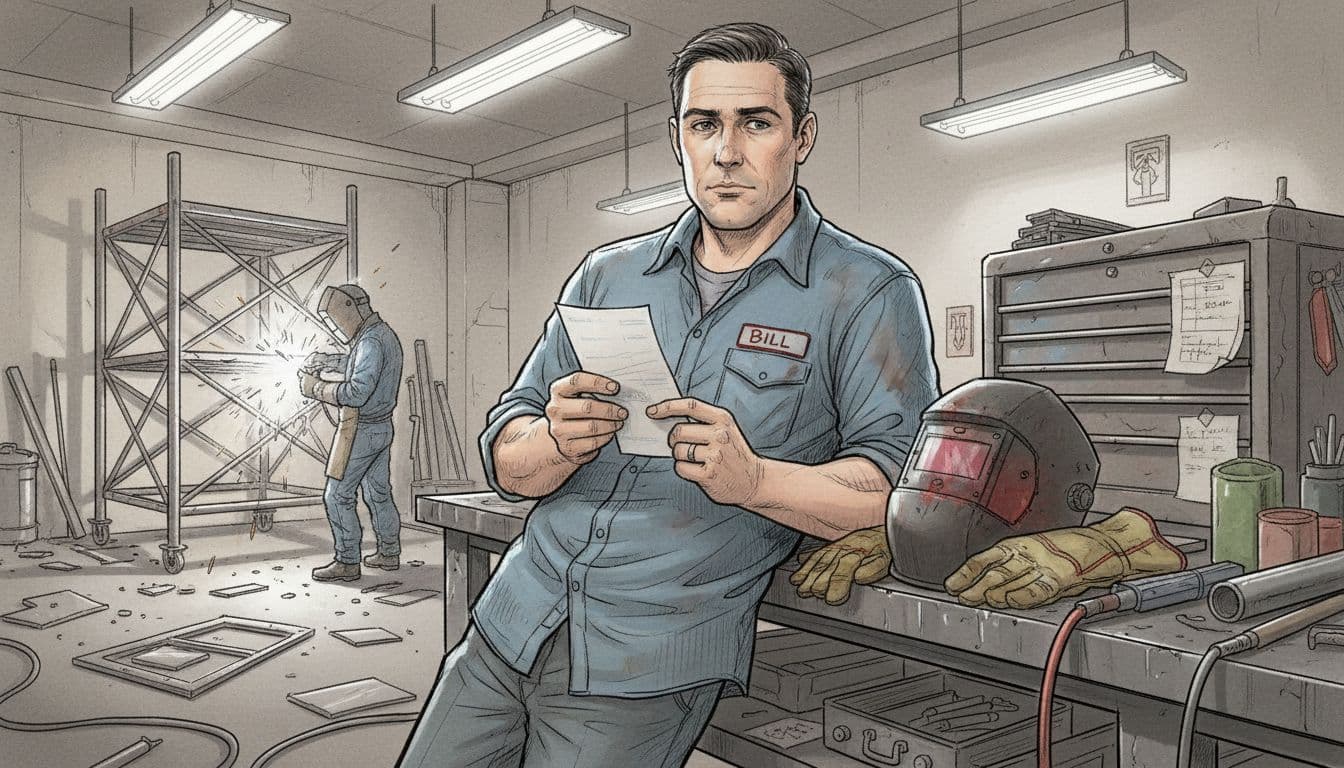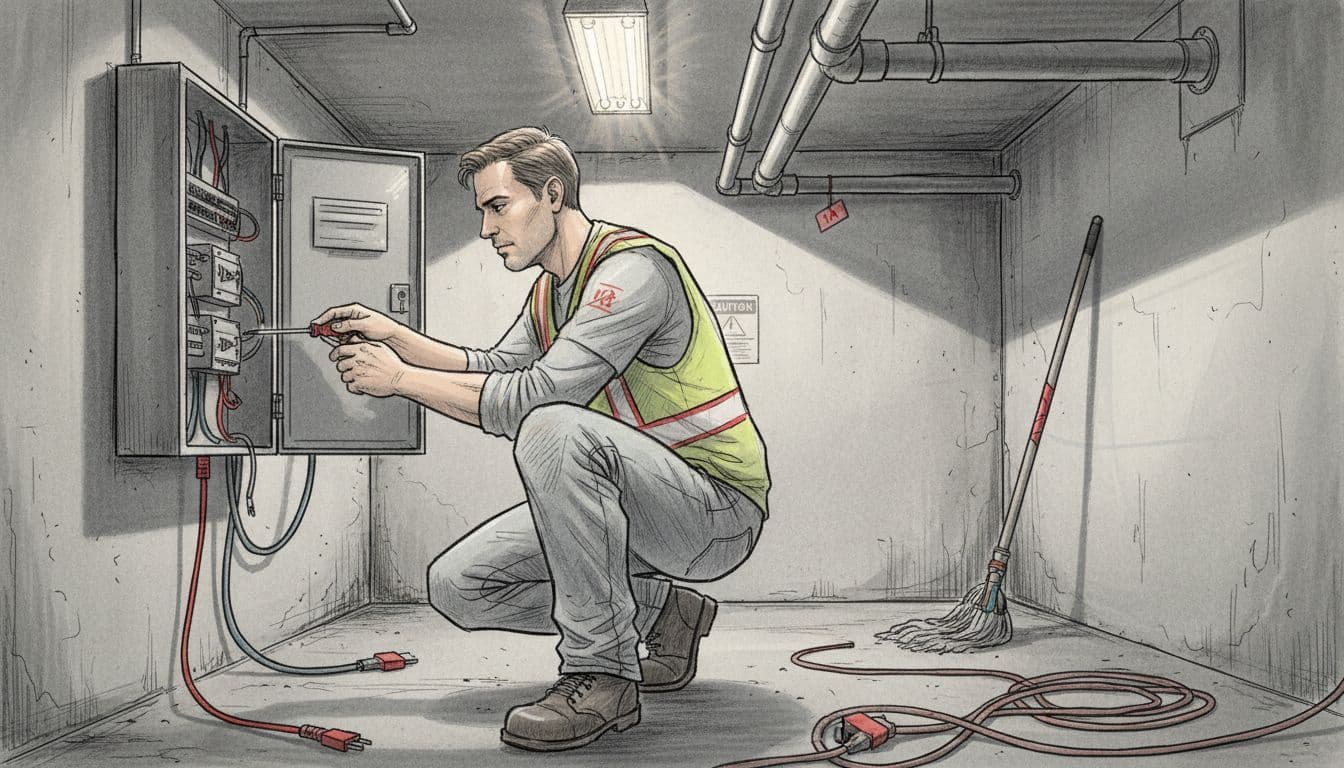Career Exploration Activities: Why Interest Areas, Work Values, and Work Styles Matter
03.30.2025
Career Exploration

We live in a world where a one-and-done career is far from the norm. Whether it’s for better pay, to avoid becoming obsolete, or to get more satisfaction, people increasingly hop between multiple professions throughout their professional careers. For some, this is a straightforward process. But for many, it’s a stressful, overwhelming process.
That’s why engaging in career exploration is so important.
Identifying where your interests and abilities meet market realities is much easier when you follow a proactive, structured process. Instead of reacting to job ads or defaulting to others’ expectations, you can systematically uncover your potential and map that onto available opportunities.
That’s why today we’re going to take a deep dive into the career exploration process to answer the most pressing questions about identifying your ideal work situation:
- What is career exploration?
- What is involved in a career exploration?
- Why is career exploration important?
- What are some career exploration activities?
- What career exploration questions should you ask?
We’ll also look at how important factors like personal interests, work styles, and work values play into your decision-making process.
Because at the end of the day, career choices are life choices—and yours deserve a thoughtful approach.
Defining the Concept: What Is Career Exploration?
Career exploration is the intentional process of discovering and evaluating potential career paths that align with your skills, interests, values, and goals. It involves researching various professions, understanding industry demands, connecting with professionals in different fields, and honestly assessing personal capabilities and preferences.
Instead of simply “following your passion” or predetermined paths, effective career exploration is a multifaceted approach that helps individuals make informed decisions about their professional futures while considering both market realities and personal circumstances.
Before we get into what this process involves, let’s clear a few things up:
- It isn’t just for undecided youth. In truth, any time you sense misalignment between your daily tasks and your long-term goals, it’s worth revisiting your career direction.
- It isn’t a one-time exercise. In fast-changing times, continuous or periodic exploration can provide fresh perspectives, spark excitement, and reveal opportunities you might otherwise miss.
So don’t get bogged down in the idea that it’s too late for career exploration or that you already checked off that box. We’re constantly growing as individuals and that means our relationship to work does as well. Don’t be afraid to keep exploring.
What Is Involved in a Career Exploration?
The journey of career discovery is rarely a straight path. Through My Career Shop interviews with professionals across industries, we’ve found that meaningful career decisions emerge from a thoughtful blend of self-reflection, market awareness, hands-on experience, and strategic decision-making.
Here’s how the process typically goes:
1. Self-Assessment
Before you can zero in on the right career, you need to look inward and identify the following:
- Skills and Competencies: Both your strongest abilities and the soft skills you bring to the table—communication, problem-solving, adaptability, etc.
- Lifestyle Needs: Do you want remote flexibility? Regular 9–5 hours? Or do you prefer high-travel, high-adventure roles?
- Personal Constraints: Geographic limitations, family commitments, or financial requirements that shape what’s realistic.
This helps shift your perspective from the generic "What do you want to be?" to the more powerful "Who do you want to become?" and “How do you want to live?”
2. External Research
Once you have a clearer sense of self, the next step is to see how that intersects with market realities:
- Industry Trends: Look at labor market insights for data-driven career guidance. Understanding which sectors are growing and which are declining is clarifying.
- Earning Potential: While salary is far from the only motivating factor, you still need money to pay the bills and contribute towards your savings.
- Role Requirements: Take the time to identify critical qualifications or certifications you might need to pivot effectively.
Understanding the market realities of different positions helps you narrow down which jobs fit best with your self-assessment.
3. Practical Engagement
Nothing clarifies your path better than trying things firsthand. Identify opportunities to experience your potential career choices by:
- Internships/Volunteering: If possible, test your interest in a particular career by rolling up your sleeves and building experience directly.
- Mentorship: Connect with professionals who currently work in your areas of interest through networking events, social media, or platforms like My Career Shop.
- Professional Interviews: Sometimes even just a single sit-down with a current professional can help you get a better idea of the role and how well it suits you.
Now let’s look at why this process of introspection, market research, and hands-on experience is such an important process for professionals of any age and career stage to engage in.
Why Is Career Exploration Important?
If you’re already in an established career or on your way to a degree that leads to one, you might be asking yourself why you would need to explore career options at this stage. But jobs more or less stay the same, while people and markets don’t.
With that in mind, here are a few reasons why you may want to take another look at that current trajectory.
Avoiding Costly Mismatches
There is a cost to every career choice—both real and hidden. Landing in a mismatched career is just one of the many ways this can manifest.
Some people settle early due to parental pressure or financial necessity, only to discover that the job’s day-to-day reality doesn’t align with their interests or values. By the time they realize it, they may feel trapped, fearing a pivot means “starting over.”
A structured career exploration approach, however, can minimize these detours by ensuring you make well-informed decisions from the start (or at any point in your journey).
Keeping Pace with Economic Transformations
Automation, artificial intelligence, and shifting consumer behaviors constantly reshape the labor market. Certain tasks once performed by people are now automated, while highly specialized or creative roles are on the rise.
Scanning industry reports, reading up on future trends, and engaging with professional associations are ways to stay informed. Career exploration—especially when revisited every few years—helps you see where demand is rising and how your skills could evolve to meet that demand.
Enhancing Overall Life Satisfaction
Work is often central to our identities. When your job resonates with your skills, aligns with your values, and has real prospects for growth, you generally experience higher levels of motivation, happiness, and purpose.
On the flip side, an ill-fitting job can seep negativity into personal relationships, mental health, and even physical well-being. By proactively exploring multiple paths to find that “best fit,” you improve not just your professional but also your personal quality of life.
Understanding Your Work Interests, Work Styles, and Work Values
A major pitfall in career decisions is focusing on just one dimension—like looking for the highest salary or following in your family’s footsteps. In reality, achieving career satisfaction means finding a job that aligns with three core elements: your work interests, work styles, and work values.
The Bureau of Labor Statistics’s Occupational Information Network (O*NET) does a great job of breaking down the three core elements and making it easier to understand which roles correspond with different work interests, styles, and values.
Take a look at the different descriptions below and see if they line up with your current perceptions:
1. Work Interests
Work interests describe the tasks or domains you naturally gravitate to. O*NET breaks work interests down into the RIASEC categories—Realistic, Investigative, Artistic, Social, Enterprising, and Conventional—they highlight different “work personalities.”
- Realistic (R): Hands-on, practical tasks (e.g., mechanics, carpentry).
- Investigative (I): Analytical or research-oriented roles (e.g., scientists, data analysts).
- Artistic (A): Creative or self-expressive pursuits (e.g., graphic design, copywriting).
- Social (S): Helping, teaching, or service-focused work (e.g., counseling, nursing).
- Enterprising (E): Persuading, managing, or leading others (e.g., entrepreneurs, sales managers).
- Conventional (C): Structured, detail-oriented work (e.g., accounting, data organization).
Interests are usually the first lens people use to assess their career journey. Understanding your specific interests narrows down roles that emphasize tasks you genuinely enjoy.
2. Work Styles
The next step is to analyze the personal characteristics that influence how you carry out tasks. O*NET classifies work styles into traits like Adaptability/Flexibility, Persistence, Analytical Thinking, Attention to Detail, and Leadership.
- Adaptability/Flexibility: Thrives on variety and change.
- Persistence: Remains motivated despite setbacks.
- Analytical Thinking: Processes information logically and critically.
- Attention to Detail: Prefers accuracy, consistency, and thoroughness.
- Leadership: Takes initiative, directs teams, and organizes projects.
It’s important to be aware of your preferred work styles because the demands of a role can make it hard to enjoy a job you have lots of interest in. Two people with identical job titles can have vastly different work experiences depending on their styles. For instance, a role with constant change might excite someone adaptable, but exhaust someone who prefers routine.
3. Work Values
Work values represent overarching principles that guide your sense of fulfillment and motivation in a job. According to O*NET, they include achievement, independence, recognition, relationships, support, and working conditions.
- Achievement: Feeling accomplished by applying strong abilities and seeing tangible outcomes.
- Independence: Preferring autonomy in deciding how and when to do tasks.
- Recognition: Seeking opportunities for advancement or leadership.
- Relationships: Valuing a friendly, collaborative environment.
- Support: Wanting supportive management and clear policies.
- Working Conditions: Needing stability, fair pay, and safe physical settings.
Even if a job aligns with your interests and preferred work style, you may feel unhappy if it contradicts your core values. For example, if you thrive on teamwork but end up working solo for 90% of the day, dissatisfaction might be inevitable.
Career Exploration Activities
Bringing together self-knowledge and market research leads you to targeted activities that can confirm—or challenge—your career assumptions. Below are top career exploration activities to refine your path.
1. Interest Profilers and Online Tools
Online assessments are a quick, direct way to see which roles match your Work Interests, Work Styles, and in some cases, Work Values. Tools like Stephen Shortt’s Career Fit Report blend these factors into curated occupational suggestions. A structured report like this saves time by highlighting a short list of roles you may not have considered.
2. Workshops, Bootcamps, and Experiments
Short-term experiences—weekend coding bootcamps, design sprints, or local leadership workshops—let you test-drive new fields at minimal commitment. If you thrive in this type of hands on challenge, it could indicate a promising path. If you’re bored or stressed, you’ve gained valuable clarity without a long-term investment.
3. Networking and Mentorship
Many insights come from talking to professionals already in the fields that interest you. Informational interviews (often just informal chats over coffee or Zoom) can expose you to the day-to-day realities of a job, typical career trajectories, and upcoming trends.
A mentor familiar with the industry’s nuances can also help you map out essential steps, from building a portfolio to seeking advanced certifications. Not to mention they create a safe space for career exploration.
4. Freelance and Side Projects
If you’re working but hesitant to make a major leap, consider dipping a toe in via freelance or side projects. A marketing manager pondering a data analytics pivot might take on a small data-cleaning project for a local nonprofit. An aspiring UX designer could offer free design improvements for a friend’s website. These small trials offer real-world exposure and help you decide if you enjoy the day-to-day tasks enough to pursue them full-time.
Career Exploration Questions
Asking thoughtful career exploration questions refines your focus and sparks deeper reflection. Below are question sets you can use on yourself and during networking conversations.
Self-Assessment Questions
- Interests: “Which tasks or activities make me lose track of time? Am I drawn to creative brainstorming, data crunching, or guiding others?”
- Work Styles: “Do I prefer routine, or am I more comfortable with constant change? How do I handle conflict or tight deadlines?”
- Work Values: “Is autonomy essential to me, or do I thrive best with close oversight? Do I crave recognition or prefer to work behind the scenes?”
Industry and Role-Specific Questions
- Market Demand: “Is the field growing or contracting? Which skills are considered must-haves?”
- Daily Realities: “What does a typical day look like for someone in this role? What challenges are common?”
- Entry and Progression: “Do I need further education or specific certifications to be competitive? What does advancement usually entail?”
Reflective Lifestyle Questions
- Work-Life Balance: “Do I need consistent hours, or can I handle shift work or irregular schedules?”
- Personal Constraints: “Will I be able to balance this career path with family obligations, travel, or financial needs?”
- Long-Term Vision: “Do I see myself in this field five years from now, or is this a stepping stone to something else?”
Kickstart Your Career Exploration with My Career Shop
A fulfilling career doesn’t happen by accident—it results from purposeful exploration and alignment between your work interests, work styles, and work values. By learning about yourself and the market, engaging in targeted experiments, and asking clear questions, you significantly reduce the guesswork.
If you’re currently dissatisfied at work or simply curious about new possibilities, make time to explore. Ask yourself what engages you most deeply, investigate which industries match that enthusiasm, and test your assumptions through short-term activities. Career exploration may sound like an extra step, but it’s ultimately a fast track to greater career satisfaction and stability.
My Career Shop is here to help you kickstart that journey. Check out our podcast interviews with professionals, our online assessments and tools, or get connected with a mentor today.
Subscribe to My Career Shop Content
Stay up to date with Blog Posts and Podcast Episodes!
Your One Stop Shop For All Career Resources
Whether you are exploring new career paths, building your resume, or preparing for your next opportunity, our tools, templates, and guidance are designed to help you navigate your career journey with clarity and confidence.
Copyright © 2025 My Career Shop. All rights reserved.





























